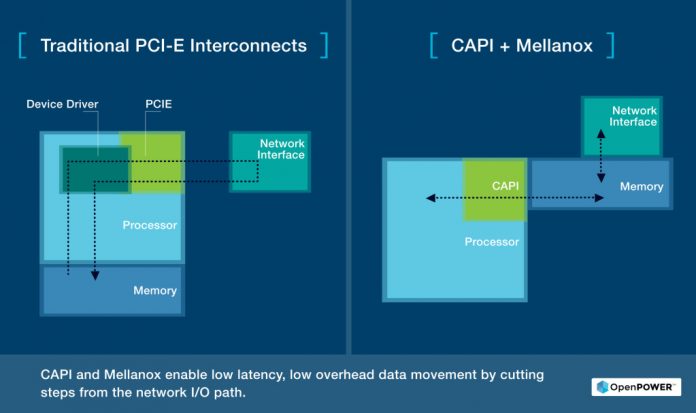
A new industry standard aims at reaching our computers soon. Nine tech giants have teamed up to launch the OpenCAPI Consortium, primarily based on IBM technologies and supported by the likes of Google, Dell, and HP. The group has stated it could provide data transfer solutions ten times faster than current speeds by next year.
The announcement by the new group follows the formation of the Gen-Z Consortium also earlier last week. The conglomerate shares several of its members with OpenCAPI, adding representation from Huawei, Samsung, Lenovo, Western Digital, and others. Gen-Z’s objective is oriented towards hardware optimization to support future advancements from the industry.
The OpenPOWER Foundation precedes the initiative of OpenCAPI members to bring innovation both in processors and software around IBM’s POWER architecture. The two non-for-profit organizations represent a significant industry move against IBM’s main competitor Intel and its rival products.

What is the OpenCAPI Consortium?
The OpenCAPI Consortium is a group of companies that want to reinvent server technologies with data at the center of their approach.
IBM is pioneering the new standard, joined by Alphabet’s Google, AMD, HP Enterprise, Dell EMC, NVIDIA, Mellanox Technologies, and Xilinx. Several of these companies are industry rivals, but together most of them compete against Intel in one field or another.
Why did these companies band together to create OpenCAPI?
OpenCAPI and its members argue that the industry can no longer rely solely on closed legacy standards like Intel’s PCIe to deliver optimum performance and compatibility with new technologies and data.
https://www.youtube.com/watch?v=g2f-RT0EjPg
The evolution of these current standards is slowing down, and it depends on limited variables to increase performance. It is also having trouble dealing with the proper transference of upcoming data loads like virtual reality, and the industry’s fast advancements may represent a challenge in the future.
Enter OpenCAPI. The open standard championed by IBM, Google, and more, presents an alternative that focuses on integration with memory, storage, process acceleration, and networks to deal with the challenges of the new digital era.
How will the OpenCAPI Consortium carry out its mission?
“OpenCAPI sets a new standard for the industry, providing a high bandwidth, low latency open interface design specification built to minimize the complexity of high-performance accelerator design. Capable of 25Gbits per second data rate, OpenCAPI outperforms the current PCIe specification which offers a maximum data transfer rate of 16Gbits per second,” the companies said.
IBM is spearheading the adoption of OpenCAPI with the introduction of the technology in its upcoming POWER9-based servers as soon as 2H17. Google, Rackspace, Mellanox, and Xilinx will follow with equally significant efforts to create or include OpenCAPI standards in their products.
The OpenCAPI Consortium is not alone, as it intends to triangulate its developments with other open initiatives carried out by the Gen-Z and CCIX consortiums as well. The three groups “welcome each other’s announcements as part of a collaborative industry effort to create an open data center architecture for the future.”
Source: OpenCAPI










